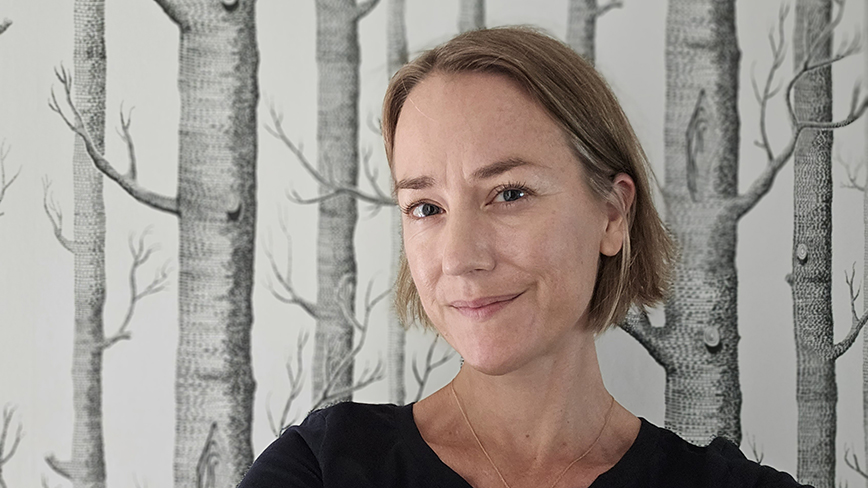Newly appointed professor who loves resource recovery

Kerstin Forsberg stepped through KTH's doors for the first time in 1998. Then she began studying the Degree programme in Chemistry and Chemical Engineering. 25 years later, she is a newly appointed professor in chemical engineering, with a passion for crystallization, a method that can be applied in resource recovery.
Kerstin Forsberg is a professor of Chemical Engineering with a focus on processes in natural systems. She is also head of the Divison of Resource Recovery, a fairly new division in the Department of Chemical Engineering that was created to focus on the issue of resource recovery.
No one can doubt that she enjoys KTH – Kerstin Forsberg started the Degree programme in Chemistry and Chemical Engineering in 1998 and then stayed on both as a doctoral student and as a postdoc. After completing her postdoc, a position as an assistant lecturer appeared, which she applied for and got. Since 1 May this year, she has been a professor. She believes that there were always new challenges and new things to do at KTH, which made her want to stay.
“At KTH there’s always room for development, becoming a professor simply means that I have a greater responsibility to fulfill the role.”
Faithful crystallization
She completed her PhD in a project dealing with crystallization, an area she has since become faithful to over the years. Both because it is so much fun and because it can be applied in resource recovery and thus contribute to a sustainable world. Crystallization is a separation technique with which, for example, acid and metal can be recovered after surface treatment – pickling – of stainless steel. When pickling stainless steel, the steel is dipped in large acid baths. In order to reuse the acids, the dissolved metals must be separated, which can be done by crystallization of metal salts.
But crystallization can also be used to recover rare earth elements – those found in, for example, nickel metal hydride batteries or in permanent magnets. Permanent magnets can be found in both engines and offshore wind turbines. Since the availability of the rare earth elements is not that great, it is particularly important to be able to recycle them.
“Battery recycling is a hot area that is very timely right now,” says Kerstin Forsberg.
The circle closed on the Berzelius days
When asked what has been most memorable or revolutionary during her years at KTH, she thinks for a while, but then comes up with it.
“It must have been when this year I was asked to participate in the Berzelius Days and had to give an inspirational lecture for high school students interested in chemistry. I myself attended the Berzelius days when I was in high school and still remember it well. I thought afterwards ‘Now the circle is closed, now I've become a professor and got to lecture at the Berzelius Days!’ It was very fun.”
“But it's also special every time a doctoral student you've supervised does a dissertation. Then you feel that you have made an effort. Or when you receive a large research grant that you really wanted.”
Teaching is something Kerstin Forsberg thinks gets more fun the older she gets. It is a task among many others, but something she believes must be allowed to take time.
“I enjoy teaching more and more. Think of all the students who flow through KTH, they are really important. Being able to educate students in an important subject makes a very big impression on society. It feels good.”
Are there any downsides to the job then? Well, it would possibly be that there are so many fun projects that it might be hard to say no. Currently, she leads seven research projects and participates in three more.
“It's easy to take on so much because it's so much fun, but you have to be able to feel safe saying no so that you have time to do what you've already taken on in a good way,” says Kerstin Forsberg.
Text: Åsa Karsberg
